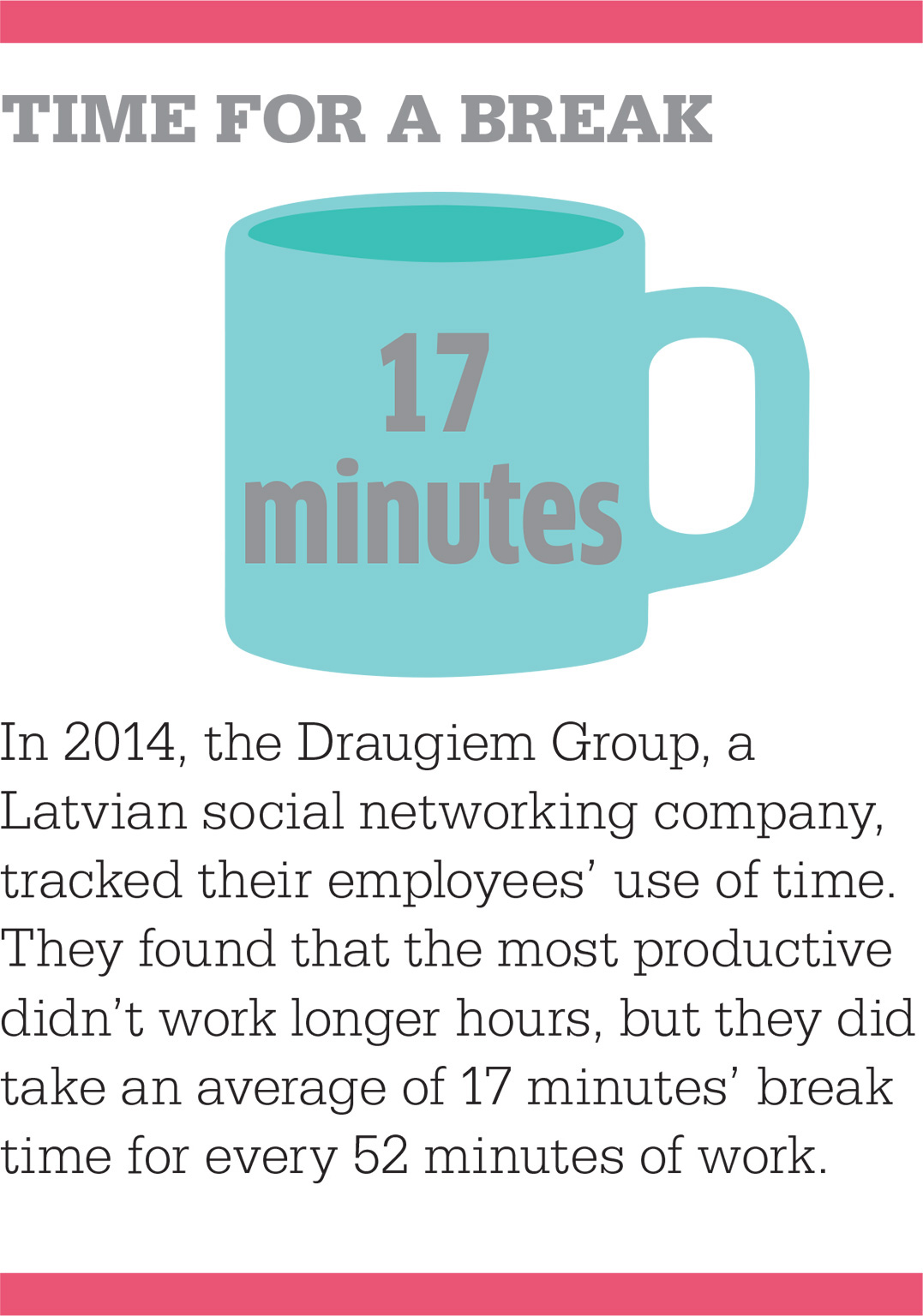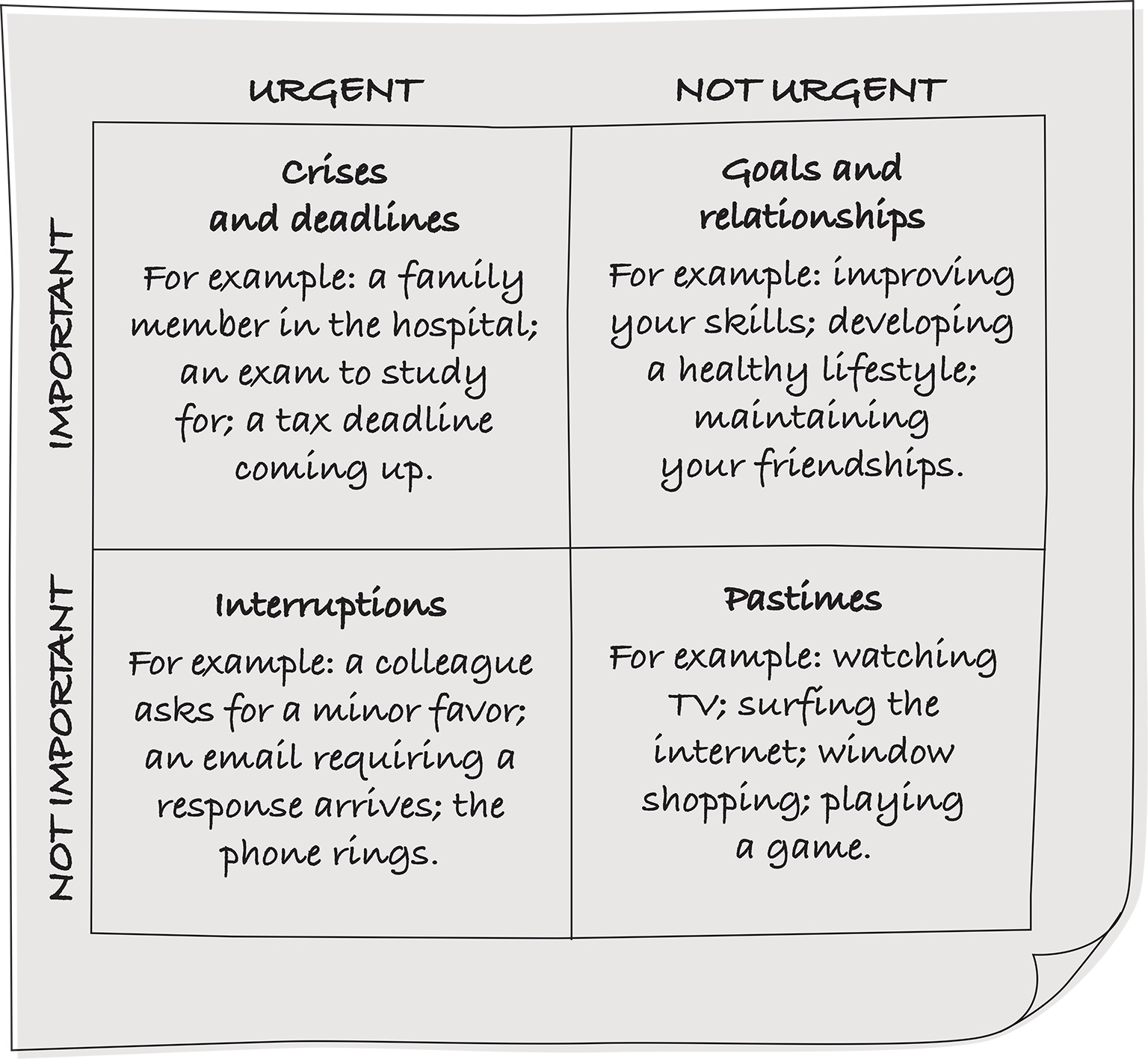
Sometimes it can feel like there just aren’t enough hours in the day, especially when we’re working hard to achieve a goal. Luckily, there are tangible ways in which we can all become more efficient.
Studies show that people who manage their time positively feel more in control, happier, and more relaxed. (Strictly speaking, of course, we can’t “manage” time; we can only manage the choices we make about how to use the available time.) Although time management is a much-studied area, some key factors come up again and again. People who handle their time well tend to combine:
- Time-assessment behaviors. This involves having a realistic overview of your strengths and weaknesses, and identifying which areas to focus on to optimize your strengths and use your time effectively (instead of wasting time trying to develop areas that might not be worth your investment).
- Planning behaviors. Setting goals, making to-do lists, and grouping tasks together are all examples of this. Clarifying your life goals is another example, because it helps you prioritize tasks and keeps you motivated.
- Monitoring behaviors. Keeping a time log is a good way to monitor your behavior. Observing how you use your hours and minutes can help you focus on tasks and identify what changes you can make to eliminate activities that sap your time and do not help you to either achieve your goals or to relax and recharge.

Planning pitfalls
Try not to spend so much time on planning and monitoring that it crowds out the actual tasks you need to do, however. Business experts often recommend limiting planning to 30 minutes at the start of the day. Be wary, too, of “analysis paralysis”, whereby you get so caught up in trying to optimize your plans that you don’t actually act on them. Time planning needs to be practical, not perfectionistic, to avoid procrastination.
The “Eisenhower” Box
If you’re struggling to decide which tasks to prioritize, try evaluating each one using this decision matrix. It’s based on US President Dwight D. Eisenhower’s remark that, “What is important is seldom urgent and what is urgent is seldom important.” Crises and deadlines should come first, but usually aren’t very common. After that, goals and relationships take precedence over interruptions.

Should you multitask?
The answer may depend on you. A 1999 US study by psychologists Carol Kaufman-Scarborough and Jay D. Lindquist identified two styles of working: “polychronic” and “monochronic.” Polychronic workers prefer to engage in several tasks at once, while monochronics prefer to perform tasks sequentially. Monochronics planned in more detail, but actually found it harder to follow through because it was more difficult for them to manage interruptions. So if you’re not comfortable with multitasking, you’re likely to need more control over your environment to limit your distractions.
When it comes to managing time, we each have a different personal style. The key is to have a clear understanding of what keeps you productive, and then plan your days to allow for as many of those behaviors as possible.
 THE FOUR “Ds”
THE FOUR “Ds”
Bombarded by distracting emails? Occupational psychologist Emma Donaldson-Feilder recommends that you try the following:

